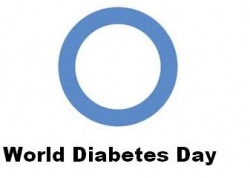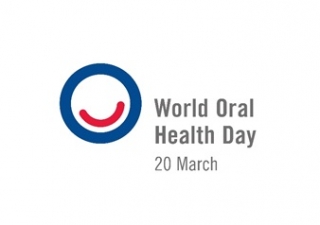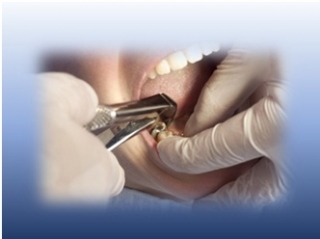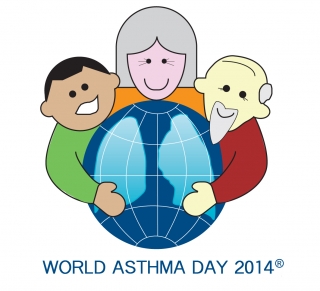WORLD DIABETES DAY ON NOVEMBER 14

World Diabetes Day Observed on 14th November
Be aware of Diabetes, but don’t be scared ! Be aware of Diabetes but don’t ignore !! Be aware of Diabetes, but don’t be complacent !!! Be aware Diabetes is a silent killer but don’t be afraid !!!!
Learn as much as you can about Diabetes !
World Diabetes Day was started by the International Diabetes Federation and World Health Organization on November 14 to mark the birth day of Ferederik Banting, who along with Charles Best was instrumental in the discovery of insulin in 1922, a life-saving treatment for Diabetes patients.
World Citizen Number Seven Billion, who was born on October 31, will face very different diseases than that of children born only a few decades ago. He or She is more likely to grow up in an urban setting, which increases their risk of getting Diabetes or a chronic obstructive pulmonary disease, cancer and heart disease.
World Citizen Number Seven Billion, is less likely to die from infectious diseases like measles or even Aids and more likely to contract Diabetes or other non-communicable diseases (NCDs) as they are now the leading causes of deaths, globally.
World Health Organization estimates that more than 346 Million people world-wide have Diabetes ! This number is likely to more than double by 2030 without intervention at least 50 per cent of all Diabetics are unaware of their condition and in some countries this figure may reach 80 per cent. Up to 11 per cent of India’s Urban population and Three per cent of rural population above the age of 15 Years have Diabetes.
India has the highest number of Diabetes cases world-wide ( 40 Million ). Another 30 Million Indians have pre-Diabetes and or at high risk of developing Type 2 Diabetes Mellitus.
Type 1 Diabetes ( Previously known as Insulin – Dependent or Childhood- on set Diabetes ) is characterized by a lack of insulin production.
Type 2 Diabetes ( Formerly called as Non-Insulin – Dependent or Adult-on set Diabetes ) is caused by the bodies ineffective use of insulin.
It often results from excess body weight and physical inactivity. Gestational Diabetes is Hyper Glycaemia, that is first recognized during pregnancy.
After almost a century of continuous research in the factors which cause Diabetes and in the field of treatment a conclusive and permanent cure for Diabetes still remains a distant dream. Insulin still remains the regular curative solution for Type 2 Diabetes.
Common Consequences of Diabetes !
Diabetes increases the risk of heart disease and stroke. Almost 40 per cent of people with Diabetes die of Cardio-Vascular Disease. Neuropathy in the feet increases the chance of foot-ulcers and eventual limb amputation. Diabetic Retinopathy is an important cause of blindness. After 15 years of Diabetes, approximately, two per cent of people become blind and about 10 per cent develop severe visual impairment. Diabetes is among the leading causes of Kidney failure – almost 10 to 20 per cent die of Kidney failure. Diabetic Neuropathy is damage to the nerves as a result of Diabetes and affects up to 50 per cent of people with Diabetes. Common symptoms are tingling, pain, numbness or weakness in the feet and hands.
How can the burden of Diabetes be reduced ?
Achieve and maintain healthy body weight. Be physically active, at least 30 minutes of regular, moderate intensity activity on most days of the week. More activity is required for weight control. Avoid tobacco use. Smoking increase the risk of Cardio Vascular diseases. Keep your blood pressure and cholesterol under control. Schedule yearly physicals for signs of kidney damage and nerve damage and heart disease as well as screen for other medical problems. Schedule yearly regular eye tests. Keep your vaccines up to date – flu vaccine, pneumonia vaccine, age 65 years or older - you may need a five year booster shot, Hepatitis B vaccine.
Diabetes Legislation
After almost a century of continuous research in the factors which cause Diabetes and in the field of treatment a conclusive and permanent cure for Diabetes still remains a distant dream. Insulin still remains the regular curative solution for Type 2 Diabetes.
Common Consequences of Diabetes !
Diabetes increases the risk of heart disease and stroke. Almost 40 per cent of people with Diabetes die of Cardio-Vascular Disease. Neuropathy in the feet increases the chance of foot-ulcers and eventual limb amputation. Diabetic Retinopathy is an important cause of blindness. After 15 years of Diabetes, approximately, two per cent of people become blind and about 10 per cent develop severe visual impairment. Diabetes is among the leading causes of Kidney failure – almost 10 to 20 per cent die of Kidney failure. Diabetic Neuropathy is damage to the nerves as a result of Diabetes and affects up to 50 per cent of people with Diabetes. Common symptoms are tingling, pain, numbness or weakness in the feet and hands.
How can the burden of Diabetes be reduced ?
Achieve and maintain healthy body weight. Be physically active, at least 30 minutes of regular, moderate intensity activity on most days of the week. More activity is required for weight control. Avoid tobacco use. Smoking increase the risk of Cardio Vascular diseases. Keep your blood pressure and cholesterol under control. Schedule yearly physicals for signs of kidney damage and nerve damage and heart disease as well as screen for other medical problems. Schedule yearly regular eye tests. Keep your vaccines up to date – flu vaccine, pneumonia vaccine, age 65 years or older - you may need a five year booster shot, Hepatitis B vaccine.
Diabetes Legislation
Often people living with Diabetes do not think of themselves as having a disability but are discriminated on the issue of insurance coverage. The standards of medical care for patients with Diabetes Mellitus state that self-management education is a critical component of comprehensive care for people with Diabetes, such that, Diabetes care without adequate self-management education can be regarded as sub-standard and unethical care. Reimbursement for equipment and supplies has been inconsistent, if available at all.
While many people with Diabetes require insulin, oral medication, anti-hypertensive agents and lipid lowering agents, coverage for medications has been limited inability to pay for insulin and other medication is directly related to life-threatening complications of Diabetes.
Data have been published to document the cost effectiveness of maintaining good glycemic control for Type 1 and Type 2 Diabetes, medical nutrition therapy, pre-conception glycemic control and routine screening of Diabetic Retinopathy and Nephropathy as well as the costs of poor glycemic control. Despite all the talk about the importance of preventive strategies the insurance companies are reluctant to provide coverage for them.
The Karnataka State Health Commission will recommend to the State for the required Legislation. The Commission will start a State Diabetes Programme. Health Personnel at various levels will be trained for health promotion, Diaabetes prevention, early detection and management.
The Karnataka State Diabetes Programme will include measuring the problem – Disease prevalence, morbidity and cost – intervening to mitigate the problem ( prevention, early diagnosis, services and care of people with Diabetes.) and evaluating the impact of the interventions. Stand alone programmes can raise
While many people with Diabetes require insulin, oral medication, anti-hypertensive agents and lipid lowering agents, coverage for medications has been limited inability to pay for insulin and other medication is directly related to life-threatening complications of Diabetes.
Data have been published to document the cost effectiveness of maintaining good glycemic control for Type 1 and Type 2 Diabetes, medical nutrition therapy, pre-conception glycemic control and routine screening of Diabetic Retinopathy and Nephropathy as well as the costs of poor glycemic control. Despite all the talk about the importance of preventive strategies the insurance companies are reluctant to provide coverage for them.
The Karnataka State Health Commission will recommend to the State for the required Legislation. The Commission will start a State Diabetes Programme. Health Personnel at various levels will be trained for health promotion, Diaabetes prevention, early detection and management.
The Karnataka State Diabetes Programme will include measuring the problem – Disease prevalence, morbidity and cost – intervening to mitigate the problem ( prevention, early diagnosis, services and care of people with Diabetes.) and evaluating the impact of the interventions. Stand alone programmes can raise
awareness of Diabetes bring worthwhile gains and may be helpful in paving the way for a more comprehensive programme.
Single component programmes may focus on one aspect of Diabetes – such as foot problem, visual impairment and kidney disease and one aspect of care – such as – clinical management guidelines, data collection, work force training.
The core elements of a Comprehensive Diabetes Programme would be Primary Prevention – preventing the development of risk factors, Secondary prevention – preventing the development of Diabetes, Tertiary prevention – preventing the development of complications through early diagnosis and effective monitoring, treatment and care of people with diabetes.
The Funding and Systems that under pin prevention and care - Work force and services, Medication, equipment and Supplies, Informaation and Communication Systems, Monitoring and Surveillance Systems, Clinical Policy, Guidelines and Governance, Resource Allocation.
Evidence based research suggests that the pathology of Diabetes may be in the gut, may start with symptoms of irritable bowel syndrome. So far, the researchers were looking only at pancreas and liver. The inability to produce fatty acid synthesis by the intestinal mucosa is attributed to be the main cause. The fatty acid synthesis is a crucial enzyme in the chain of lipid metabolism and is regulated by insulin. Lack of fatty acid synthesis induces chronic inflammation which is a pre-cursor state of Diabetes. The inflammation causes insulin resistance and Diabetes.
Basic Treatment!
People with Type 1 Diabetes require insulin, people with Type 2 Diabetes can be treatment with Oral medication, but may also require insulin. Blood Pressure Control, Foot Care.
A massive public Diabetes Health Awareness Programme funded by the State, across the State to bring about changes in the life-style of the people, various awareness programmes.
Single component programmes may focus on one aspect of Diabetes – such as foot problem, visual impairment and kidney disease and one aspect of care – such as – clinical management guidelines, data collection, work force training.
The core elements of a Comprehensive Diabetes Programme would be Primary Prevention – preventing the development of risk factors, Secondary prevention – preventing the development of Diabetes, Tertiary prevention – preventing the development of complications through early diagnosis and effective monitoring, treatment and care of people with diabetes.
The Funding and Systems that under pin prevention and care - Work force and services, Medication, equipment and Supplies, Informaation and Communication Systems, Monitoring and Surveillance Systems, Clinical Policy, Guidelines and Governance, Resource Allocation.
Evidence based research suggests that the pathology of Diabetes may be in the gut, may start with symptoms of irritable bowel syndrome. So far, the researchers were looking only at pancreas and liver. The inability to produce fatty acid synthesis by the intestinal mucosa is attributed to be the main cause. The fatty acid synthesis is a crucial enzyme in the chain of lipid metabolism and is regulated by insulin. Lack of fatty acid synthesis induces chronic inflammation which is a pre-cursor state of Diabetes. The inflammation causes insulin resistance and Diabetes.
Basic Treatment!
People with Type 1 Diabetes require insulin, people with Type 2 Diabetes can be treatment with Oral medication, but may also require insulin. Blood Pressure Control, Foot Care.
A massive public Diabetes Health Awareness Programme funded by the State, across the State to bring about changes in the life-style of the people, various awareness programmes.
Diabetes is a slow killer with no known curable treatments. However, its complications can be reduced through proper awareness and timely treatment. Three major complications are related to blindness, kidney damage and heart attack. It is important to keep the blood glucose levels of patients under strict control for avoiding complications.
One of the difficulties with tight control of glucose levels in the blood is that such attempts may lead to Hypoglycaemia that creates much severe complications than an increased level of blood glucose. Researchers now look for alternative methods for Diabetes treatment.
One of the difficulties with tight control of glucose levels in the blood is that such attempts may lead to Hypoglycaemia that creates much severe complications than an increased level of blood glucose. Researchers now look for alternative methods for Diabetes treatment.
Author : Dr. N. Prabhu Dev
Author's Profile
Dr N. Prabhudev, Chairman, Karnataka Health Systems Commission.



















